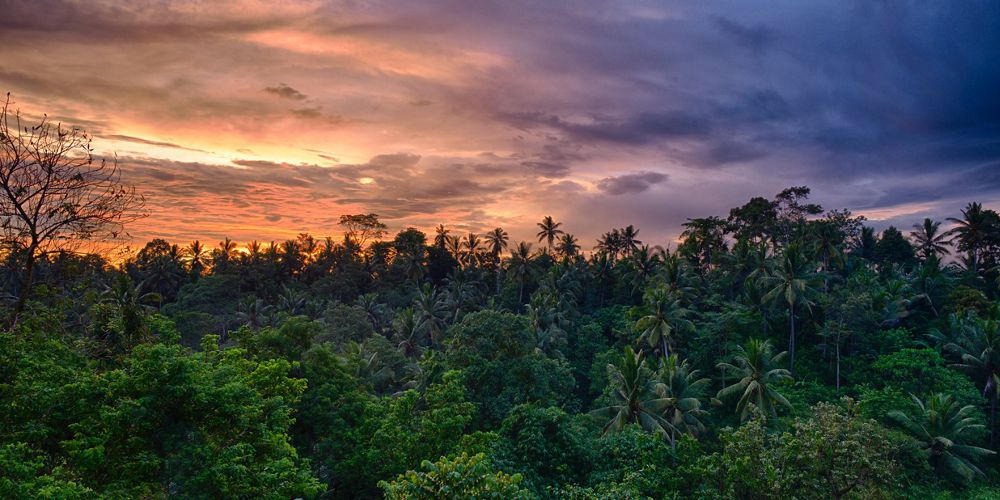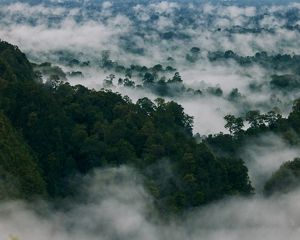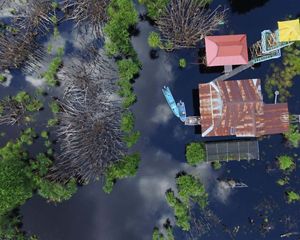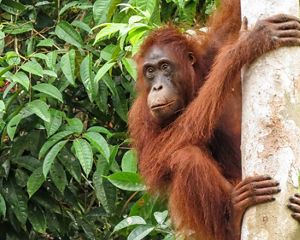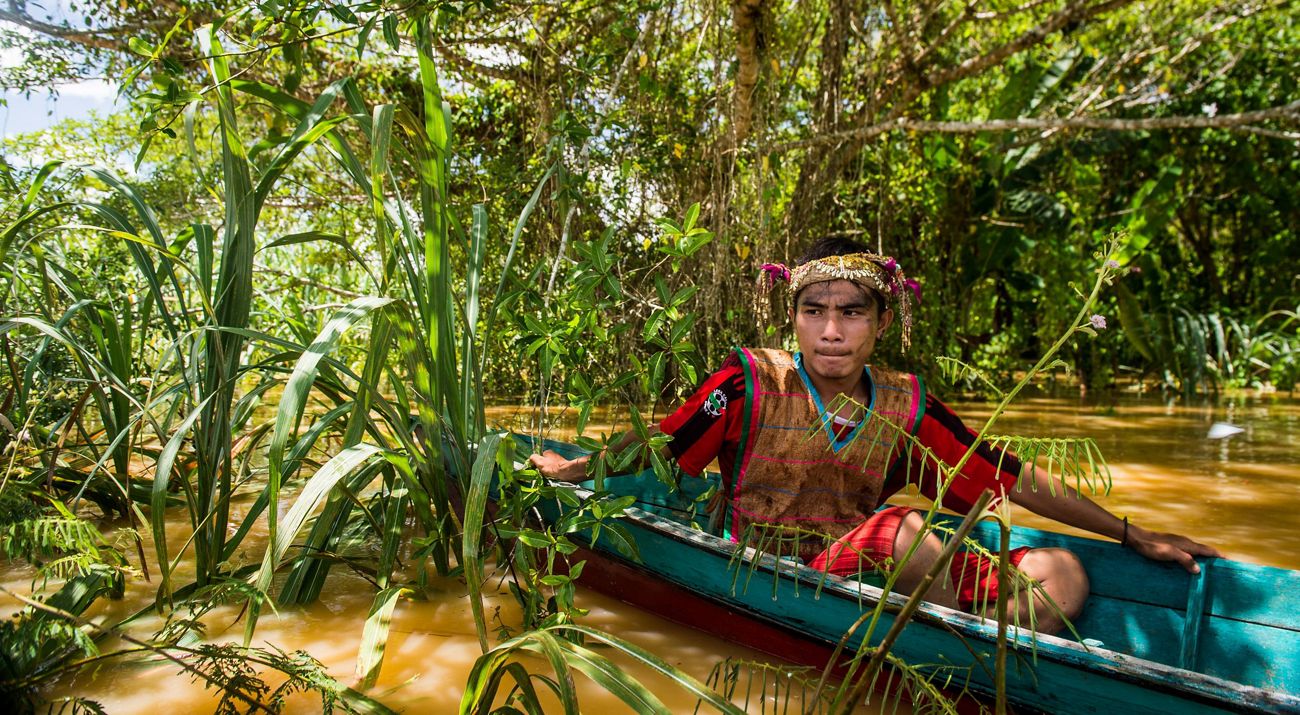
SIGAP: Inspiring Community Actions for Change
TNC pursues a community-based approach to balance forest conservation, economic development and sustainable natural resources management.
Indonesia’s tropical rainforests are home to an abundance of plants and animals, including rare and iconic wildlife such the orangutan. But its tropical forests are disappearing faster than anywhere else on Earth. Today, Indonesia’s rich resources are under threat due to human activities and global climate change, which can lead to a loss of biodiversity and negatively impact human well-being.
Community-Led Conservation
Today, thousands of villages located within or near forest areas still depend heavily on the natural resources these forests provide. These communities are crucial to ensure the long-term sustainability of forest management balanced with economic development. Unfortunately, limited access to technical skills, poor integration into government-led natural resources management initiatives and a lack of financial support make it challenging for communities to participate in improved natural resource management efforts.
To address these issues, The Nature Conservancy and its country partner, Yayasan Konservasi Alam Nusantara (YKAN), have adopted a community-driven approach called Aksi Inspiratif Warga untuk Perubahan, or SIGAP, a Bahasa Indonesia acronym meaning “Community Inspiring Actions for Change.” The approach aims to enables villagers to develop a long-term vision for the future by facilitating rights for access to and management of natural resources, develop sustainable livelihoods and strengthen village governance. At the heart of SIGAP is an asset-based community development approach that builds upon local assets such as knowledge, capacities, institutions and experiences to support local sustainable development. Through SIGAP, communities can:
- Improve their leadership skills,
- Develop village and land use plans,
- Advance sustainable livelihoods,
- Improve forest management through community patrols, and
- Gain access to rights over their forests.
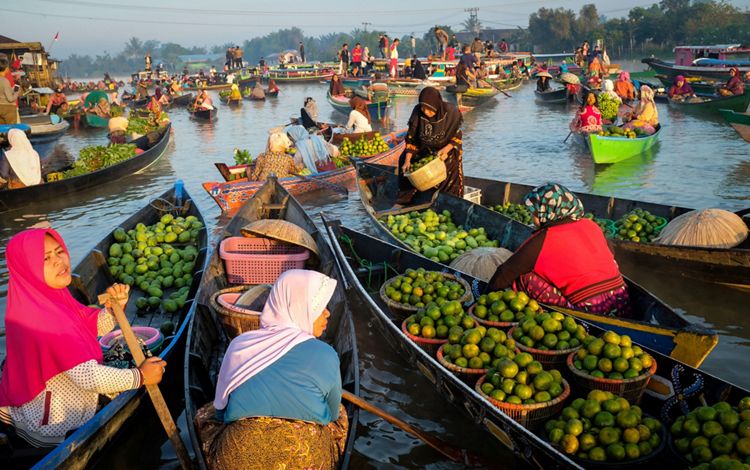
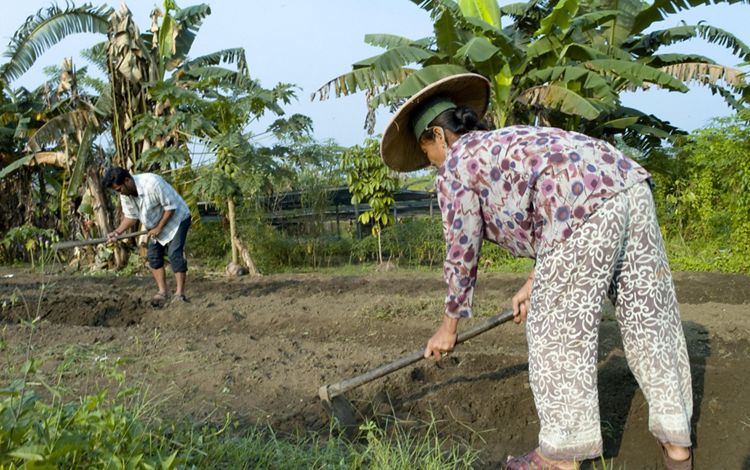
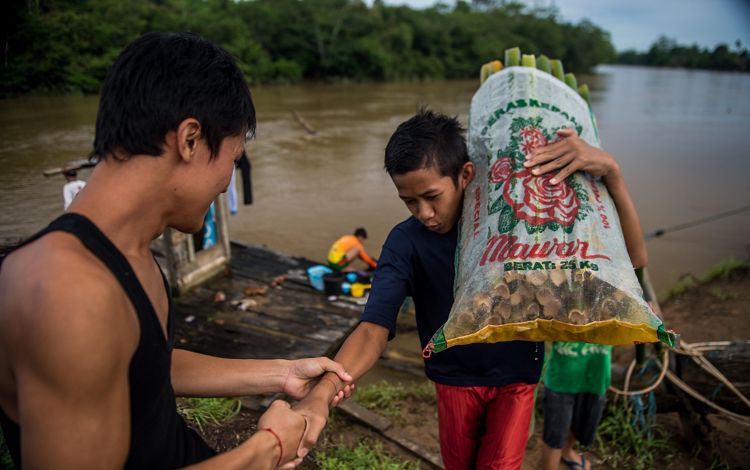
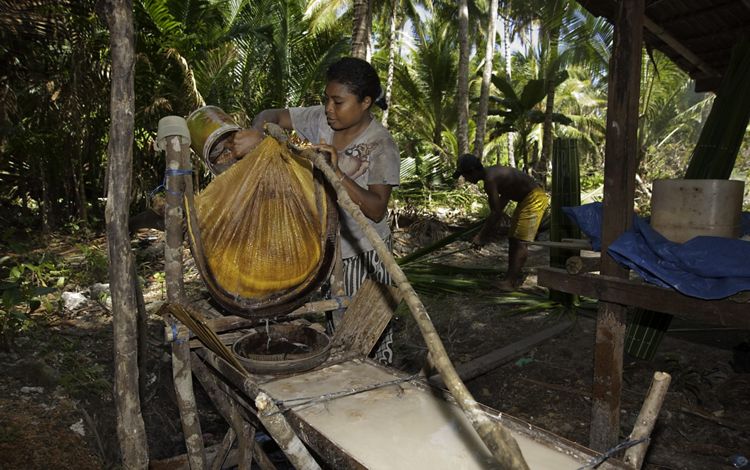
In 2010, the SIGAP approach was implemented in two pilot villages in East Kalimantan. Since then, it has been supported by the government and adopted as part of East Kalimantan’s green development scheme. The government has issued a regional regulation recognizing SIGAP as an approach to village assistance in both East Kalimantan province and Berau Regency. Over time, SIGAP has evolved into the SIGAP Sejahtera program, which has been implemented throughout Berau Regency. TNC actively assisted these partners in securing funds from the debt-for-nature swap for Kalimantan to support their work. In 2022, the SIGAP approach was introduced and accepted by Bulungan Regency in North Kalimantan. And today, 18 villages in the Kayan Landscape, Bulungan Regency, replicated the SIGAP approach, enabling them to manage village and sub-regency information system.
The SIGAP approach is also used to assist coastal communities where YKAN’s ocean program is implemented, including communities in Raja Ampat, East Nusa Tenggara, Wakatobi and others.
"I believe that we can strengthen and even expand existing collaborations so that nature is protected, and society prospers amidst the increasingly complex challenges of the natural crisis," said YKAN Executive Director, Herlina Hartanto.
Through SIGAP, communities will have a stronger voice in how to best balance conservation and natural resources management with needed economic development.
Support Our Work
By working together, communities in Indonesia will have a stronger voice in how to best balance forest conservation and natural resources management with needed economic development.
